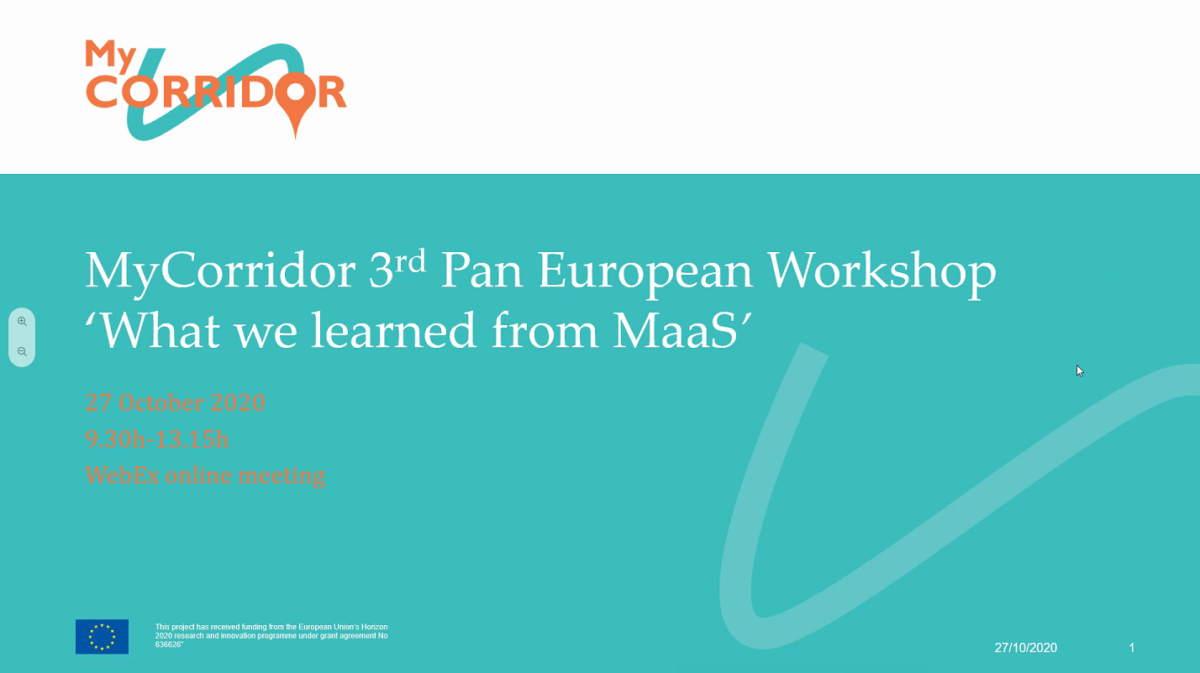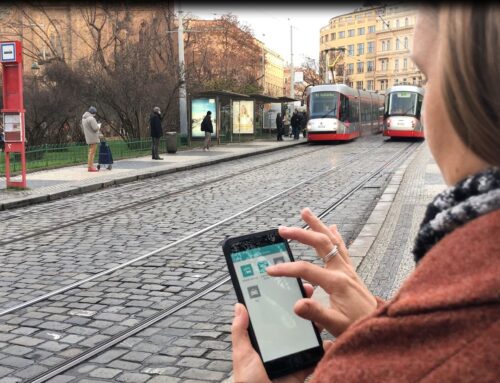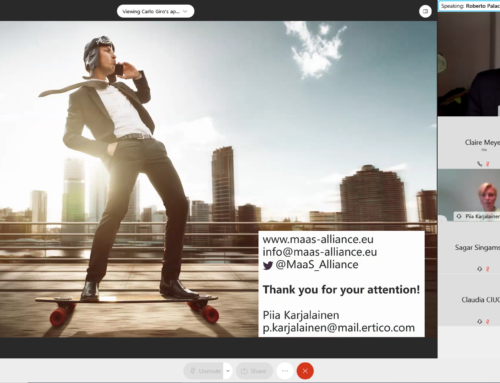MyCorridor – http://www.mycorridor.eu/ – organised on 27 October its final event, a Pan-European workshop gathering experts from the transport and mobility sector to discuss the progress and future of Mobility as a Service (MaaS).
The event was held virtually gathering over 70 participants from several segments of the industry; transport and mobility service providers, research bodies, authorities and associations.
Nearing completion after more than three years of work, the MyCorridor was designed to facilitate sustainable travel through the development of an innovative MaaS platform, connecting MaaS issuers from various European cities and regions in order to reduce journey times and promote green choices in transport.
During the event, MyCorridor representatives and guest speakers shared valuable insights into the future of mobility and opportunities and challenges of MaaS based on the lessons learnt from MyCorridor.
Roberto Palacin, the project coordinator, and Innovation and Networks Executive Agency representative Claudia Ciuca opened the workshop. Two sessions followed on “MaaS in Europe – future challenges and opportunities” and the lessons learnt and experiences from MyCorridor and the sister projects IMOVE and MaaS4EU.
High level experts animated the two sessions: Eric Mink from the Dutch Ministry of Infrastructure and Water Management, showcasing MaaS initiatives in the Netherlands; Sagar Singamsetty, Senior Adviser Passenger Transport – IRU, on European challenges and opportunities of MaaS; Piia Karjalainen, Secretary General – MaaS Alliance, discussing achieving roaming and scalable MaaS; and Sonila Metushi, Policy Advisor – KNV (Royal Dutch Transport Federation), offering an operator’s perspective on MaaS; Alessandro Barisone from algoWatt and Akrivi Kiousi from Intrasoft.
Participants were invited to actively participate to the third and final session “Let’s think of MaaS impacts”, where preliminary results and quantitative impact of the different project pilots, as well as information from stakeholder groups on the qualitative impact, were presented. This session was a great opportunity to validate the findings from stakeholder consultations conducted across the project. By means of an interactive survey, the most popular entry-level barriers indicated by participants preventing cross-border MaaS included interoperability issues, concerns over sharing commercially sensitive data as well as lack of visibility of a win-win ecosystem; on the other hand, among the most favored recommendations that MyCorridor put forward were the central role for Public Authorities acting as a guarantor for the data exchange process, embedding traffic management into MaaS planning and the establishment of data sharing protocols and fair business rules avoiding unfair market competition.
Key conclusions deriving from the workshop include the need of an open, fair and transparent data governance system. A better integration of services, especially cross border, is necessary to offer users a seamless travel experience. Challenges remain, however, related to the integration of transport services, use of a common MaaS API, reluctance to share data and a fragmented ticketing integration system. Trust among all stakeholders was identified as being key to MaaS’ success. It is important for each involved actor in the MaaS ecosystem to clearly know the benefit that MaaS will bring to them. Overall, MaaS has the potential to optimise the mobility system and positively impacting the traveller’s journeys by offering multimodal transport solutions. To succeed, participants agreed that MaaS will have to be user centric, open, complementary and scalable.
For information and contacts: Carlo Giro – IRU – Carlo.Giro@iruprojects.org







